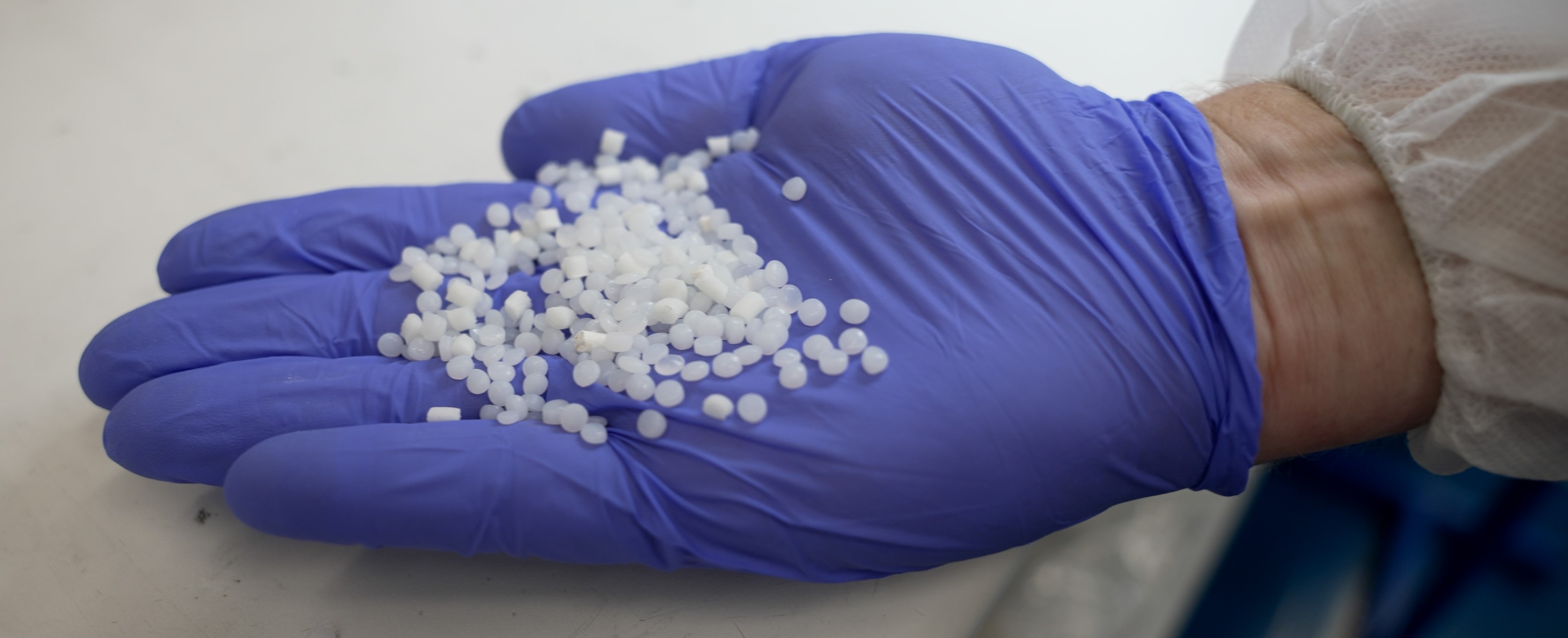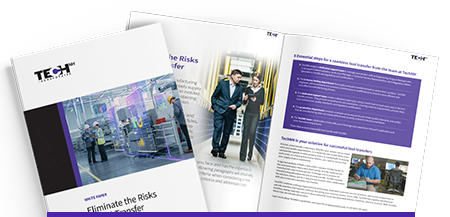
Converting a metal part to a plastic injection molded part can offer significant advantages for companies across various industries. TechNH specializes in converting metal parts to high-performance plastic alternatives, delivering results that improve performance while cutting costs. Cost reduction is not the only benefit of switching from metal to plastic. Plastic parts are lighter weight and have longer life than metal parts. This blog will explore all the benefits of metal-to-plastic conversion. Based on these benefits, you may find that the shift from metal parts to plastic injection molded parts is the right move for your business.
Wide Range of Materials
TechNH can work with a wide range of plastic materials that can replace metals based on hardness, strength, rigidity and long life. For example, Polyetheretherketone (PEEK) is one of the strongest engineering plastics. It has mechanical properties that closely mimic metals. PEEK has a high tensile strength, flexural strength and rigidity even at elevated temperatures. Furthermore, PEEK is highly resistant to chemical and thermal degradation as well as radiation. Nylon, especially when reinforced with carbon fibers or glass, has excellent strength and stiffness. This plastic has excellent wear resistance, low friction properties and can withstand repeated mechanical stress. PEEK and nylon are just two examples of plastics that TechNH can work with to replace a metal part. When considering the replacement of a metal part with plastic, TechNH can offer the optimal plastic or reinforced plastic for your requirements.
 |
Unhappy with your current molder?See how to seamlessly transfer your tool to get started. |
Get White Paper |
Cost Reduction
The most significant benefit of converting metal parts to plastic parts using injection molding is the reduction in overall production costs. Metal components typically require expensive materials and labor-intensive machining processes. Plastic, on the other hand, is more affordable and easier to mold into complex shapes, especially for high-volume production runs.
Injection molding offers a streamlined manufacturing process that eliminates many of the costly steps associated with metal part production. Once the mold is created, parts can be produced quickly and with consistent quality. This efficiency can lead to significant savings in labor and time which translates to a lower cost per unit.
Lighter Weight
Plastics are generally much lighter than metals, and this weight reduction provides several advantages. For one, lighter parts reduce the overall weight of products, which can be critical in industries like automotive, aerospace or consumer goods where weight plays a key role in performance and cost-efficiency. For example, reducing weight in automotive parts can enhance fuel efficiency, and, in shipping, lighter products mean lower freight costs. Additionally, lower weight translates to easier handling and assembly during manufacturing, which can further reduce labor costs and the potential for worker fatigue or injury.
Enhanced Design Flexibility
Injection molding allows for a level of design flexibility that is difficult to achieve with metal components. With metals, complex shapes often require multiple steps involving welding and machining. Plastics, however, can be easily molded into intricate geometries in a single step.
This design freedom is especially beneficial for companies looking to integrate multiple functions into a single component, reduce the number of parts in an assembly or improve the ergonomics and appearance of their products. By partnering with TechNH, you can take full advantage of this versatility to achieve innovative solutions that optimize both form and function.
Corrosion Resistance and Durability
Plastic parts are inherently resistant to corrosion which is a common issue with metal components. Metals, particularly in applications exposed to moisture or corrosive environments, can rust or degrade over time, leading to higher maintenance costs and shorter product lifespans.
Plastics do not corrode and are often chemically resistant, making them ideal for industries like medical devices, water filtration systems, and industrial machinery. Whether the application involves exposure to water, chemicals or extreme environments, plastic parts provide a long-lasting, maintenance-free alternative to metal components.
Improved Energy Efficiency
Beyond the benefits in manufacturing and shipping, plastic components can also contribute to energy efficiency in end-use applications. For example, plastic parts used in automotive or industrial machinery often help reduce friction or wear, contributing to smoother operation and less energy consumption. The lighter weight of plastics can also lower the energy demands of machines that use these parts, such as pumps, motors or turbines.
Sustainability
Many companies today are prioritizing sustainability in their operations and converting metal parts to plastic can support these initiatives. Plastics used in injection molding are often recyclable and require less energy to produce compared to metals. Furthermore, plastic parts can help reduce fuel consumption in transportation and reduce the environmental impact associated with corrosion and the disposal of metal components.
Application-Specific Advantages
TechNH engineers have worked with companies across a wide range of industries to develop plastic alternatives for metal parts. Example industries include:
- Alternative Energy: Plastics in proton exchange membrane frames required for hydrogen electrolyzers, carbon elctrolyzers and fuel cells resist corrosion and perform well in chemically aggressive environments. Plastic frames are a durable and cost-effective alternative to metals.
- Medical Devices: Plastic parts that replace parts in medical devices can meet stringent regulatory standards while providing lightweight, durable and biocompatible components. Example parts include surgical instrument handles, implantable device housings and orthopedic implants.
- Water Filtration Systems: Water filtration systems often involve prolonged exposure to moisture and chemicals making corrosion-resistant plastics a more reliable option than metals for parts such as filter housings, valves and pump components.
- Industrial Machinery: Plastic parts which replace metal parts used in industrial machinery can withstand harsh conditions without corroding or wearing down. Plastic parts ensure a longer lifespan and reduced maintenance. Example parts are gears, sprockets, bearings, conveyor components and fan blades.
Why Choose TechNH for Your Metal-to-Plastic Conversion?
Converting metal parts to plastic requires expertise in material selection, design optimization and manufacturing processes. The TechNH engineering team is dedicated to helping companies achieve high-performance results with our specialized plastic injection molding services. The team works closely with you to identify the right materials and design solutions. TechNH both ensures that the final product meets or exceeds your performance requirements and delivers long-term value.
By partnering with TechNH, you can harness the advantages of plastic injection molding, including reduced costs, enhanced performance and greater sustainability. Let us help you transform your metal parts into efficient, high-performance plastic components. Contact us today to get started.
